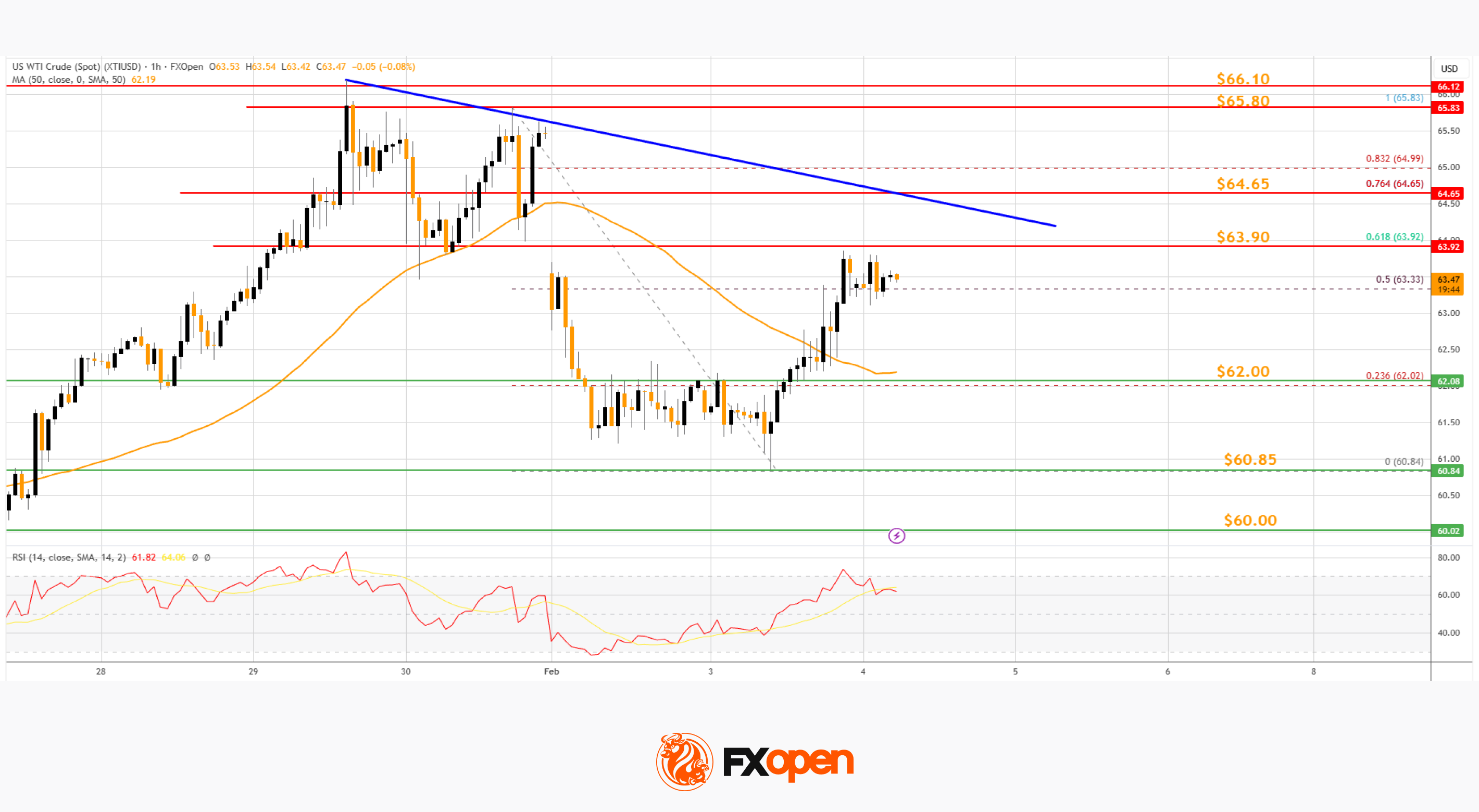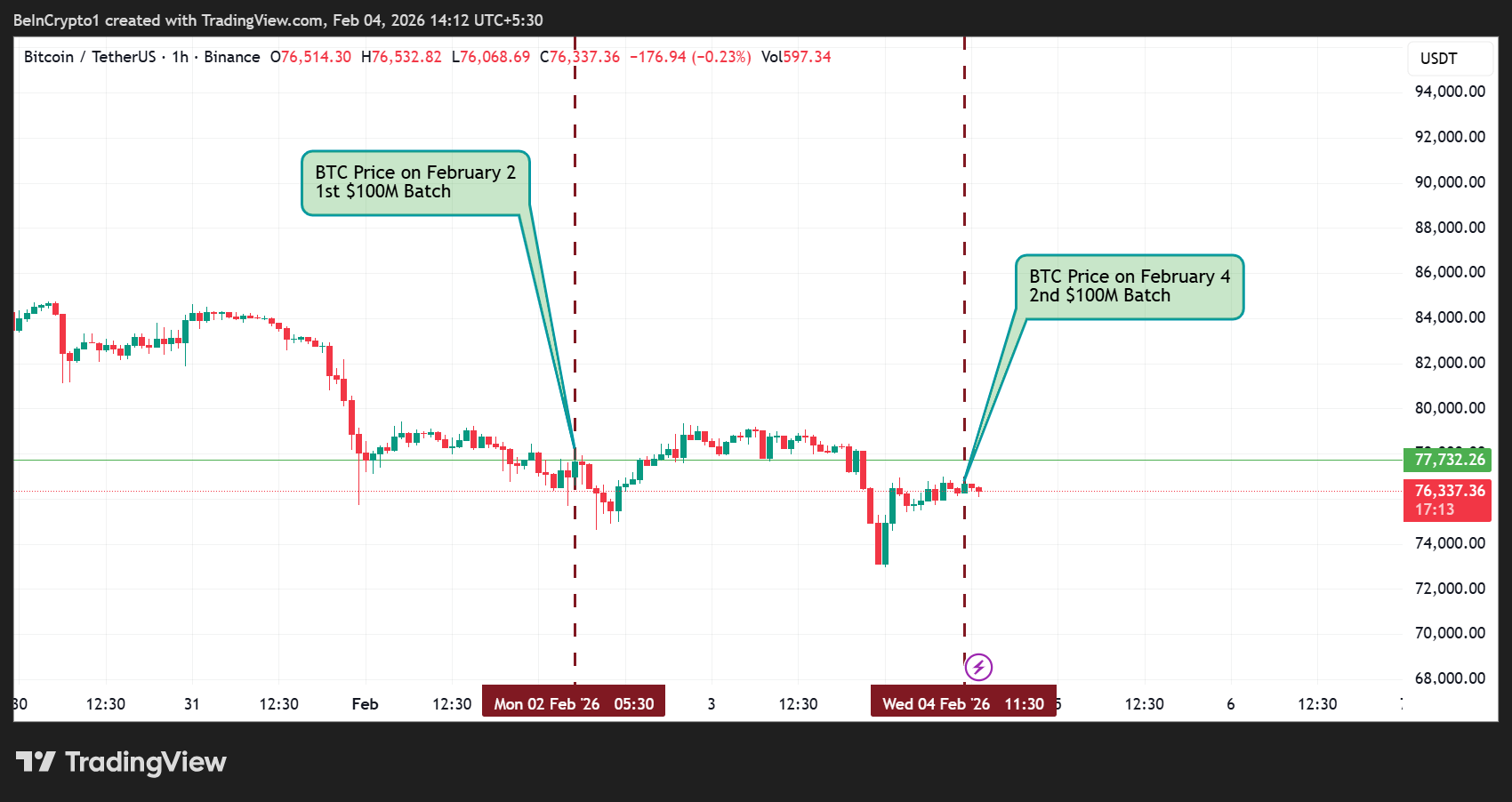Crypto World
AI will benefit crypto, or break it

Disclosure: The views and opinions expressed here belong solely to the author and do not represent the views and opinions of crypto.news’ editorial.
The debate over when AI will arrive on blockchains has been settled. It’s already here. In 2024 alone, bots accounted for around 90% of stablecoin transaction volume. And on networks like Gnosis Chain, AI agents now generate more than half of Safe smart account activity.
Summary
- Crypto is becoming a machine economy — AI agents already dominate onchain activity, turning blockchains into infrastructure primarily used by autonomous systems rather than humans.
- AI widens the security arms race — the same tools that optimize capital and yield also enable machine-speed exploits, making human-only defense models obsolete.
- Crypto must evolve to intelligent, embedded security — sequence-level, AI-native defenses are required so permissionless systems remain resilient, not defenseless, in a DeFAI world.
In short, the onchain economy is rapidly becoming machine-dominated, even as most high-level decisions remain human-driven. This is the era of DeFAI, where the majority of onchain actors are not people, but rather autonomous software systems that observe markets, execute transactions, and adapt their behavior in real time.
This creates a fundamental tension for crypto. Blockchains were designed as trustless systems, minimizing reliance on human discretion or centralized intermediaries. But they are now being stress-tested as infrastructure for machine-scale activity. The next test for crypto comes down to whether we can upgrade onchain infrastructure to capture the upside of AI while avoiding its potential risks.
Why AI is moving onchain
More AI agents are being deployed on blockchains because they provide a transparent transacting infrastructure internet. In the context of the internet, an AI agent is effectively a brain with hands on a keyboard and mouse. But the internet is fragmented by closed APIs, bespoke integrations, and siloed data environments. For an autonomous system, every new platform requires custom logic, permissions, and integration work, creating friction that compounds at scale.
Blockchain removes these frictions for agentic transacting. They offer highly standardized, composable environments where data, execution, and liquidity are natively interoperable. An agent can reason over the full state of the system, interact with shared standards, and route capital across protocols without negotiating a new interface each time. As more decentralized networks and protocols come online, this standardization also allows agents to more easily overcome liquidity fragmentation by coordinating activity across different online environments in real time.
With the rise of low-cost layer-2 networks like Zircuit and Base, the final barrier of transaction costs is also disappearing. Agents can now afford to make thousands of micro-decisions per day, rebalancing portfolios and routing liquidity with a frequency that would be physically impossible for a human user to achieve.
The speed gap in crypto security
The onchain AI raises an important paradox. The features that make blockchains a powerful environment for AI agents also expand the range of actions those agents can take. The emergence of AI in crypto systems presents something of a double-edged sword. The ability for AI to continuously evaluate thousands of contracts is tremendously useful for things such as yield and capital management, but can also be abused to exploit vulnerabilities.
This shift exposes a widening speed gap in crypto security. In the past, hacking was a specialized skill that required deep technical expertise. It was a contest between a sophisticated hacker and a smart contract auditor. But AI is erasing this skill gap. New tools allow bad actors to be much more efficient, leveraging specialized models to probe contracts for edge cases that human auditors may have missed. Eventually, offensive autonomous agents may easily emerge.
Recent incidents illustrate how this shift is already playing out. Both the Balancer exploit and the Yearn yETH incident relied on non-obvious attack paths that took years to surface despite extensive prior auditing. Although these exploits have not been definitively linked to AI, the novelty and precision of the attack paths suggest the involvement of machine-assisted fault discovery.
More cyberattacks like these will surely come. And once security dynamics shift to machine time, responding with purely human processes becomes wholly insufficient, and intelligent, automated defense becomes a necessity.
Establishing an AI immune system
If AI is going to run the economy, security has to evolve with it. Sequencers, mempools, and fraud proofs assume there is a natural limit to how fast sophisticated strategies can be iterated. But that assumption is no longer valid in a world where machine-speed activity is defended by human reaction times. As a result, security needs to move from a reactive model to a continuous process built into every transaction lifecycle. This is the core thesis behind Sequence Level Security (SLS).
SLS functions as an immune system for the blockchain by embedding security directly into transaction execution. Instead of relying on static rules and manual monitoring to spot an ongoing hack, the network sequencer evaluates transactions in context by simulating their effects, analyzing execution patterns, and assessing whether proposed state transitions resemble known exploit behaviors or anomalous activity.
For instance, if the system detects a transaction that mimics a known exploit pattern or attempts a malicious state change, it can isolate and block that transaction before it is ever finalized onchain. This shifts security from damage control to prevention, operating at the same speed and scale as automated attackers.
This matters for DeFAI because autonomous agents depend on predictable execution and reliable system behavior. In a world where AI-driven exploits become easier to generate, infrastructure that can proactively contain malicious activity is what allows productive automation to operate safely. In short, sequence-level security creates a stable environment in which beneficial agents can scale without being crowded out by adversarial AI.
Permissionless should not mean defenseless
DeFAI will bring unprecedented financial efficiency to the onchain economy. It offers a vision of the future where automated agents can manage liquidity more efficiently, route capital more intelligently, and remove friction from financial systems that were never designed for real-time optimization.
But this future is also rife with risk unless we collectively upgrade the infrastructure that underpins it. In an environment where bad actors have access to infinite scale and instant iteration, the only viable defense is infrastructure that is intelligent enough to protect itself. By doing so, we can ensure that the onchain economy remains open to AI innovation without becoming defenseless against it.
Crypto World
XRP ETFs Report $19.46M Daily Inflow as Total Assets Hit $1.11B

TLDR
- Total daily net inflow across XRP ETFs reached $19.46 million, with cumulative net inflow at $1.20 billion.
- XRPC ETF on NASDAQ saw no daily inflow, with assets totaling $296.59 million, representing 0.30% of XRP’s share.
- The XRP ETF, sponsored by Bitwise on NYSE, had a daily net inflow of $4.82 million, with assets of $272.38 million.
- The XRPZ ETF reported a daily inflow of $12.13 million, with assets at $246.85 million and a +0.11% daily change.
- The GXRP ETF had a negative daily change of -0.14%, with a net inflow of $2.51 million and assets of $195.42 million.
According to a SoSoValue update as of February 3, the total daily net inflow across XRP ETFs stood at $19.46 million. This brings the cumulative total net inflow to $1.20 billion. The total value traded on the day amounted to $49.17 million, with the total net assets reaching $1.11 billion, representing 1.13% of XRP’s market cap.
XRPC and TOXR ETFs Record No Change in Daily Flows
The XRP ETFs on the market showed various levels of performance. A look at individual XRP ETFs reveals that XRPC ETF, listed on NASDAQ and sponsored by Canary, saw no change in daily inflow with a cumulative net inflow of $405.41 million.

The fund’s assets amounted to $296.59 million, and it represented 0.30% of XRP’s market share. Its market price stood at $17.19, with a daily change of +0.23%. The value traded reached $3.99 million, with daily volume hitting 236.96K shares.
The TOXR ETF, listed on CBOE and sponsored by 21Shares, saw a positive change of +1.61%. Despite no inflow or outflow, the ETF has had a cumulative net inflow of $314.54 million and assets of $195.42 million, representing 0.25% of XRP’s share. The market price was $15.81, showing a +0.51% daily change. The value traded was $1.08 million, with 70.67K shares traded on the day.
XRPZ, GXRP, and XRP ETFs Reports Inflows
XRP on the NYSE, sponsored by Bitwise, experienced a daily net inflow of $4.82 million. Its total assets amounted to $272.38 million, representing 0.28% of XRP’s share. The fund’s market price was $18.07. The value traded reached $24.94 million, with a daily volume of 1.42 million shares.
The XRPZ ETF, listed on the NYSE and sponsored by Franklin, reported a daily inflow of $12.13 million. The ETF’s assets amounted to $246.85 million, or 0.25% of XRP’s share. Its market price was $17.57, reflecting a +0.11% daily change. This ETF saw $8.11 million in value traded, with a daily volume of 471.62K shares.
Finally, the GXRP ETF, listed on the NYSE and sponsored by Grayscale, had a negative daily change of -0.14%. It recorded a net inflow of $2.51 million, bringing total assets to $195.42 million. The ETF’s market price was $31.33, up 0.16% on the day. The total value traded was $11.04 million, and daily volume was 361.40K shares.
Crypto World
Tether scales back $20 billion funding ambitions after investor resistance: FT


Tether has quietly pulled back from plans to raise as much as $20 billion in fresh capital after facing investor resistance to a proposed valuation that would rank the stablecoin issuer among the world’s most valuable private companies, per an FT report on Wednesday.
The company, which issues the USDT stablecoin with over $185 billion in circulation, had explored a funding round last year that could have valued Tether at around $500 billion, according to people familiar with the talks.
Advisers have since floated raising closer to $5 billion, a sharp reduction from earlier discussions, as investors questioned both the size of the deal and the valuation.
Chief executive Paolo Ardoino said the larger figures had been misunderstood, describing the $15 billion to $20 billion range as a ceiling rather than a target.
“That number is not our goal,” Ardoino said in an interview to FT. “If we were selling zero, we would be very happy as well.”
Tether’s fundraising push has drawn attention because the company is already highly profitable and has limited operational need for external capital. Ardoino said the firm generated roughly $10 billion in profit last year, largely from interest earned on the assets backing USDT, and added that insiders were reluctant to sell shares.
Still, prospective investors have raised concerns about a valuation that would place Tether alongside firms such as SpaceX, ByteDance and leading artificial intelligence companies. Some have also pointed to regulatory risks and long-standing questions around reserve transparency as sticking points.
Tether has faced scrutiny since its founding over the quality of its reserves and the use of USDT in illicit activity. While the company now publishes quarterly attestations from BDO Italia, it has not released a full audit. Ratings agency S&P Global downgraded Tether’s reserve assessment last year, citing increased exposure to assets such as bitcoin and gold.
But Ardoino has defended the company’s approach, arguing that Tether’s profitability compares favorably with loss-making AI firms commanding similar valuations.
“If you believe some AI company is worth $800 billion with a huge minus sign in front, be my guest,” he said.
Tether’s growing footprint in U.S. Treasuries and gold has made it one of the most significant bridges between traditional finance and digital assets — a role that continues to attract attention even as investors debate how much the company is worth.
Crypto World
Over 60% of crypto press releasesl inked to high-risk or scam projects, study finds


Crypto press release distribution services have become a tool for questionable projects to sidestep third-party scrutiny and create an illusion of legitimacy, a new report from Chainstory shows.
The researchers reviewed 2,893 releases sent out between June and November last year. They found that more than 60% came from projects with “classic red flags” such as an anonymous team making unrealistic claims, copy-paste websites and aggressive tactics to scare investors into action. Some were outright scams confirmed as fraudulent by cross-referencing with blacklists and active scam alerts.
Unlike established, traditional distribution services, crypto-focused press wires often have deals that guarantee placement on dozens of websites with little oversight. These paid-for placements often appear alongside actual news, sometimes without clear labels, making it difficult for readers to tell the difference.
“If you stumble upon a crypto press release on a news site, odds are better than 50/50 that the project behind it is of low credibility (or worse),” the researchers wrote in the report published Tuesday.
Most of the releases were self-authored marketing announcements about minor product updates, token sales or exchange listings, the team said. Only about 2% reported meaningful news like venture funding or acquisitions, types of stories that would typically earn editorial coverage.
CoinDesk contacted several press wires, but none had replied by publication time.
Pay to display
At heart is the relationship between distribution services and websites. The wires act as a pipeline, pushing out content for a fee, while the websites charge to display them without editorial filtering, according to the report.
To the casual reader, it may look like coverage from reputable media outlets, even though no journalist reported the story and the claims within the release are unverified.
This tactic is not limited to startups. Major exchanges regularly push press releases announcing every token listing to create a sense of constant activity, the researchers noted. There is no suggestion the exchanges are involved in wrongdoing.
The scattergun approach, however, boosts visibility with search engines, clutters news feeds and muddies the line between reporting and promotion while giving otherwise unproven or high-risk projects a veneer of unearned legitimacy.
“The core mechanism of the crypto press release industry is piggybacking,” the study said. “By funneling content through syndication networks, issuers avoid the ‘newsworthiness’ filter of a newsroom and instead rely on the credibility of the distribution platform.”
In one example from December, scammers used fake branding to impersonate Circle Internet (CRCL), the issuer of the USDC stablecoin. The release promoted a fake tokenized metals platform and linked to what appeared to be a wallet-draining site. The release was debunked by CoinDesk, but only after appearing on multiple news sites.
While some news outlets have started labeling or limiting press release content, the lack of clear standards and editorial filters remains a vulnerability in the crypto media ecosystem, the report said.
Crypto World
Crypto’s wealthy investors and industry leaders see IPO hype waning in 2026


The hype around cryptocurrency companies going public is waning because markets are still viewed as insufficiently large for the traditional finance (TradFi) firms that are taking an increased interest in the industry.
Fewer investors feel as confident as they did last year, according to a report from the influential CfC St. Moritz, Switzerland crypto conference, which recorded the outlook and predictions of 242 respondents at the event.
After a record 2025 that saw 11 IPOs raise $14.6 billion, “sentiment points to waning IPO intensity and rising consolidation risk,” the report said. Liquidity shortages are seen as the biggest threat, according to the report.
Of 242 respondents, 107 believe “TradFi is taking over” crypto, up more than 50% year over year.
Attendees, however, noted an improvement in crypto regulation in the U.S. and UAE. The U.S. jumped from last to second place in regulatory favorability within a year, reflecting rising confidence, and the UAE remains the top jurisdiction.
“The CfC St. Moritz Report captures the thinking of some of the most influential decision-makers in digital assets,” said Nicolo Stöhr, CEO of the CfC St. Moritz. “Their responses point to a clear shift in priorities, from hype to infrastructure, liquidity, and regulatory credibility, as well as a rapidly changing view of the U.S. market. This is informed capital speaking, and it reflects where the industry is truly heading.”
Crypto World
Polymarket & Kalshi Give Free Groceries During Prediction Market Boom

Two leading prediction-market platforms, Kalshi and Polymarket, are leaning into experiential marketing as they vie for dominance in a fast-growing segment of the financial landscape. Kalshi staged a $50 grocery giveaway for more than 1,000 Manhattan residents on Tuesday, drawing lines that stretched for blocks and highlighting the power of real-world perks to convert interest into signups. In tandem, Polymarket announced plans to open a free grocery store, a venture branded as “The Polymarket,” slated to launch next week with a pledge of $1 million to Food Bank for NYC to assist food access across all five boroughs. The dual promotions illustrate how prediction-market platforms are blending commerce, charity, and media partnerships to expand reach beyond digital trading floors.
Thousands have already picked up their free Kalshi groceries!
We are being told we’ve already inspired other companies to keep up the initiative!
2 more hours to get yours
Westside Market | 84 3rd Ave. NYC pic.twitter.com/8R11OGODLu
— Kalshi (@Kalshi) February 3, 2026
Kalshi’s giveaway took place at the Westside Market on 84 3rd Ave in Manhattan, a venue chosen to maximize visibility among urban shoppers already accustomed to the grocery aisles of daily life. The event ran between 12 pm and 3 pm local time, and footage circulating on social media shows long lines that extended for several blocks. The guest list for the promotion tallied 1,795 names, a figure described by Kalshi as an indicator of robust interest in markets that sit at the intersection of public participation and financial speculation. The company’s broader strategy in 2025 included generating $263.5 million in fee revenue, illustrating how these platforms monetize crowdsourced insights through prediction activity and related services.
“Free groceries. Free markets. Built for the people who power New York.”
Meanwhile, Polymarket revealed a parallel push to inject the experience of its markets into real-world settings. The company said it had signed a lease to open what it brands as “New York’s first free grocery store,” aiming to launch the venture next Thursday at 12 pm local time. In support of the initiative, Polymarket donated $1 million to the Food Bank for NYC to bolster food access across all five boroughs. The timing aligns with a broader push by both platforms to integrate traditional media strategies with their online ecosystems, including public-facing campaigns and high-visibility advertising components that are increasingly difficult to distinguish from mainstream marketing.
The Polymarket initiative was not the only signal of a broader marketing tilt. Kalshi has engaged in media partnerships, including collaborations with CNN and CNBC during 2023 and 2024 cycles, while Polymarket has pursued collaborations with Dow Jones in early 2024. These alliances reflect a trend in which prediction-market operators seek to normalize and accelerate participation through mainstream outlets, a move that can affect liquidity and user acquisition in a space that sees daily volume in the hundreds of millions.
Kalshi gives out free groceries to thousands of New Yorkers https://t.co/62BO68KbuZ pic.twitter.com/rBnSAqWdBg
— Historic Vids (@historyinmemes) February 3, 2026
Across the industry, trading volumes in prediction markets have surged in recent months, with daily activity measured well above $400 million. The scale underscores the sector’s momentum as traditional finance intersects with decentralized and on-chain thinking. Kalshi’s and Polymarket’s growth has been underscored by their valuations; both platforms have drawn multibillion-dollar assessments following significant funding rounds and strategic integrations. The volume growth is notable because it coincides with a broader reaggregation of liquidity around derivative-style contracts tied to current events, sports outcomes, and macro developments—areas where prediction markets have garnered increasing interest from both retail and institutional participants.
Those market dynamics intersect with regulatory and competitive considerations. Industry observers note that prediction-market advertising faced a high-profile challenge during major U.S. sports broadcasts, specifically with the Super Bowl slated for Feb. 8, when advertising restrictions were cited as a constraint for such platforms. In the meantime, the promotional efforts by Kalshi and Polymarket reflect a broader appetite to test new distribution channels and community-building models, particularly in major markets like New York City where both platforms are headquartered.
Kalshi has distributed free groceries to thousands in NYC as part of a broader push to democratize markets
— Historic Vids (@historyinmemes) February 3, 2026
Both Kalshi and Polymarket are rooted in New York City, a jurisdiction that remains central to the industry’s branding and strategy. The city’s status as a financial hub, housing the New York Stock Exchange and the Nasdaq, provides a backdrop that could help attract mainstream attention to prediction markets as legitimate tools for forecasting and civic participation. The partnerships with traditional media outlets, coupled with on-the-ground promotions, illustrate how the space is attempting to bridge online activity with tangible, real-world experiences.
Market context
Market context: The prediction-market segment continues to exhibit rapid growth in liquidity and engagement, even as it navigates a complex regulatory and advertising environment. The combination of large-donor events, high-profile media partnerships, and city-focused promotions indicates a push to normalize and scale these platforms beyond niche online communities, while still relying on event-driven incentives to drive signups and participation.
Why it matters
For users, these promotions may lower the friction to engage with prediction markets and explore how markets price events in real time. For investors and builders, the initiatives reveal the potential for user acquisition through experiential programs and philanthropy, while also highlighting the importance of disciplined risk management and regulatory awareness as volumes rise. The campaigns also reflect a broader trend of blending consumer experiences with financial instruments, a development that could shape how new entrants think about distribution, trust-building, and community governance in prediction ecosystems.
From a market structure perspective, the convergence of media partnerships, real-world store concepts, and online trading desks could influence liquidity flows, contract design, and the range of outcomes that platforms offer. The emphasis on partnerships with established media brands and charity groups may help broaden the audience beyond traditional traders, a factor that could influence the valuation trajectories and strategic priorities of these operators in the coming quarters.
What to watch next
- Launch date and details for “The Polymarket” free grocery store, including its location, hours, and product offerings, scheduled for next Thursday at 12 pm local time.
- Results and turnout from Kalshi’s Westside Market promotion, including any follow-on campaigns or additional free-grocery events.
- Regulatory and advertising developments around prediction markets ahead of major events such as the next Super Bowl.
- Any new media partnerships or cross-promotional campaigns as the platforms seek to sustain growth in NYC and beyond.
Sources & verification
- Kalshi’s Westside Market grocery giveaway details, including the event timing and location (Westside Market, 84 3rd Ave, Manhattan).
- Guest-list figures and attendance reporting for Kalshi’s promo (1,795 sign-ups; media estimates of “thousands”).
- Polymarket’s lease announcement for a new NYC grocery store and the $1 million donation to Food Bank for NYC.
- The Polymarket post on X announcing the store launch and related updates.
- Industry context on prediction-market volumes and Kalshi’s 2025 fee revenue ($263.5 million) and “multibillion-dollar valuations.”
- Partnerships with Dow Jones (Polymarket) and CNN/CNBC (Kalshi) and broader media activity.
- Advertising restrictions related to the Super Bowl affecting prediction-market promotions.
- DefiLlama’s reporting on daily prediction-market trading volumes (above $400 million).
Grocery promos illuminate the race to shape prediction markets
The rivalry between Kalshi and Polymarket is less about a single product and more about a narrative that blends user engagement, real-world impact, and media visibility. Kalshi’s promotional event at the Westside Market in Manhattan demonstrates a direct approach to converting curiosity into participation, with a tangible payoff in the form of free groceries and a high turnout. The associated social-media chatter—evidence of a pipeline from online engagement to offline foot traffic—suggests the campaign achieved its core objective: to broaden awareness and recruit a broader audience into a space that has, to date, been dominated by digital activity and a relatively narrow subset of enthusiasts.
Polymarket’s response—a move to open a free grocery store—extends the promotional strategy into a durable, long-form engagement. By tying the store to a charitable effort with a reported $1 million donation to Food Bank for NYC, the company frames its market ecosystem as an instrument for social good while simultaneously creating a venue for real-world interaction with its trademark “free markets” concept. The lease agreement and the store’s planned launch time—12 pm local time on a Thursday—edge the project closer to a conventional retail rollout, albeit anchored by a prediction-market frame that invites visitors to consider probabilities in everyday decisions.
From a market-structure perspective, these promotional pushes are set against a backdrop of surging liquidity. Daily volumes in prediction markets exceed $400 million, a level that signals growing appetite for event-driven contracts and crowd-sourced forecasting. Kalshi’s reported 2025 fee revenue of $263.5 million, coupled with “multibillion-dollar valuations,” underscores the financial scale that these platforms have achieved in a relatively short period. While the revenue and valuation figures reflect fundraising and partnerships rather than pure trading profits, they point to a vibrant ecosystem in which media tie-ins, sponsorships, and philanthropic commitments intersect with product development and user acquisition strategies.
The campaigns also reflect a broader regulatory and reputational environment. The industry has faced scrutiny around advertising during major events, including proposals to limit promotional activity around the Super Bowl. As Kalshi and Polymarket expand their footprint, they will likely navigate this landscape by emphasizing transparency, compliance, and partnerships with established brands. The NYC focus of both initiatives spotlights the importance of local markets in building a scalable national or international footprint for prediction markets, an approach that echoes the way traditional financial markets have grown through regional hubs connected by digital platforms.
//platform.twitter.com/widgets.js
Crypto World
Bitcoin’s $47K Discount: Why Math Shows $123K Target While Price Sits at $76K

TLDR:
- Bitcoin’s power-law z-score at -0.69 indicates 38.2% discount from $122,681 mathematical trend value
- ETF outflows accelerated 265% to $15.25 billion in 30 days, driving persistent mechanical selling
- Open interest dropped 21.6% alongside 19.5% price decline, signaling deleveraging not panic selling
- Maximum gamma at $75K creates price compression with call wall at $90K and flip level at $71K
Bitcoin trades at $76,337 as of writing while mathematical models place its trend value at $122,681, creating a 38.2% discount that stems from mechanical deleveraging rather than fundamental weakness.
Data analyst David highlights this gap between short-term price formation driven by exchange-traded fund flows and long-run anchors determined by fixed supply and production costs.
The power-law z-score stands at -0.69, suggesting the asset trades significantly below its statistical trend despite unchanged underlying fundamentals.
ETF Outflows Drive Persistent Price Pressure
The primary catalyst behind Bitcoin’s current price weakness appears through exchange-traded fund activity.
Estimated net outflows reached $15.25 billion over the past 30 days, representing a 265% acceleration in redemptions. Trading volume remains at 0.8 times normal levels, indicating sustained rather than panicked selling pressure.
David explains that “this is how a scarce asset gets pushed below its ‘map’ without a dramatic capitulation.” The flow remains persistent but measured, avoiding the high-volume liquidation cascades typical of market crashes. Spot trading volume corresponds with gradual position unwinding rather than forced selling.
The distinction matters because mechanical selling creates different market dynamics than sentiment-driven crashes.
Exchange-traded fund investors can redeem shares steadily without triggering the feedback loops that amplify volatility. This steady pressure pushes price lower while maintaining relatively orderly market conditions.
Traditional panic selling typically accompanies volume spikes and accelerating price declines. Current market behavior shows neither characteristic, suggesting the selling pressure stems from portfolio rebalancing or institutional allocation shifts.
The absence of volatility expansion supports this interpretation of gradual rather than distressed selling.
Derivative Positioning Reveals Compression Dynamics
Open interest declined 21.6% over 30 days while price dropped 19.5%, producing a positive correlation of 0.66 between the two metrics.
David notes that “when price falls with collapsing open interest, you’re not seeing panic. You’re seeing balance sheets quietly shrink.” This synchronized decline indicates deleveraging rather than new short positions accumulating.
The paper-to-spot ratio stands at just 1.9%, reflecting reduced derivative activity relative to underlying asset trading. Options market structure shows net gamma exposure at negative $43 million, near neutral territory.
Maximum gamma concentrates at the $75,000 strike, creating a gravitational effect around current prices.
Put walls sit at $75,000 approximately 1.3% below spot, while call walls emerge at $90,000 roughly 18.5% higher. The gamma flip level appears at $70,999, about 6.5% below current trading levels.
David observes that “price feels ‘stuck’ because hedging flows are absorbing movement near the strike. Not because demand disappeared.”
The analyst emphasizes the asymmetric setup this creates, stating that “downside needs the persistent seller to keep selling. Upside mostly needs the seller to stop.”
The derivative structure adds friction to large moves in either direction until flow patterns shift materially or positioning constraints change substantially.
Crypto World
Market Analysis: Gold and WTI Crude Oil Set Sights On Another Leg Higher

Gold prices started a fresh increase from $4,400 and moved above $5,000. WTI Crude oil prices are gaining bullish momentum and might even test $65.00.
Important Takeaways for Gold and WTI Crude Oil Prices Analysis Today
· Gold prices started another increase from $4,400 after a sharp decline.
· A connecting bullish trend line is forming with support at $5,000 on the hourly chart of gold at FXOpen.
· WTI Crude climbed above the $61.50 and $62.00 levels.
· There is a key bearish trend line forming with resistance at $64.65 on the hourly chart of XTI/USD at FXOpen.
Gold Price Technical Analysis
On the hourly chart of Gold at FXOpen, the price found support near $4,400 after a massive selloff. The price formed a base and started a fresh increase above $4,800.
The bulls cleared the $5,000 barrier and the 50-hour simple moving average. There was also a move above the 50% Fib retracement level of the downward move from the $5,595 swing high to the $4,402 low. The RSI is now above 50, and the price could aim for more gains.

An immediate hurdle is near the 61.8% Fib retracement at $5,140. The first key area of interest might be $5,310. An upside break above $5,310 resistance could send Gold toward $5,500. Any more gains may perhaps set the pace for an increase toward the $5,595 high.
An initial bid zone on the downside is near a connecting bullish trend line at $5,000. If there is a downside break below $5,000, the price might decline further.
In the stated case, the price might drop toward $4,820. The next key zone for the bulls might be $4,680. Any more losses might send the price toward $4,400.
WTI Crude Oil Price Technical Analysis
On the hourly chart of WTI Crude Oil at FXOpen, the price started a fresh upward move from $60.85 against the US Dollar. The price gained bullish momentum after it broke $62.00.
The bulls pushed the price above the 50% Fib retracement level of the downward move from the $65.83 swing high to the $60.84 low. The price even climbed above the 50-hour simple moving average. The price is now facing hurdles near the 61.8% Fib retracement level at $63.90.

The RSI is now near the 60 level, and the price could aim for more gains. If the price climbs higher again, it could face resistance near a key bearish trend line at $64.65.
The next major hurdle for the bulls sits at $65.80. Any more gains might send the price toward the $66.10 zone or even $67.20. Conversely, the price might correct gains and test $62.00.
The next major breakdown zone on the WTI crude oil chart is $60.85, below which the price could test $60.00. If there is a downside move below $60.00, the price might decline toward $58.50. Any more losses may perhaps open the doors for a move to $55.00.
Start trading commodity CFDs with tight spreads (additional fees may apply). Open your trading account now or learn more about trading commodity CFDs with FXOpen.
This article represents the opinion of the Companies operating under the FXOpen brand only. It is not to be construed as an offer, solicitation, or recommendation with respect to products and services provided by the Companies operating under the FXOpen brand, nor is it to be considered financial advice.
Crypto World
Why Binance SAFU Fund Conversions Don’t Lift Bitcoin Price

Binance has completed two $100 million batches of stablecoin-to-Bitcoin conversions from its Secure Asset Fund for Users (SAFU), totaling $200 million or 20% of its $1 billion target.
The conversions are part of a 30-day plan announced on January 30, 2026, which aims to shift the SAFU Fund’s reserves from stablecoins into Bitcoin while maintaining a protective floor for user funds.
Sponsored
Sponsored
Binance SAFU Fund Conversions: $200 Million In, Bitcoin Price Shows Little Reaction
The first batch, announced and executed on February 2, involved 1,350 BTC, valued at about $100.7 million at the time, with Bitcoin trading near $77,000.
The second batch, announced today, February 4, converted another $100 million in stablecoins to approximately 1,349.9 BTC.
These conversions were sent to the SAFU Fund’s publicly disclosed Bitcoin address: 1BAuq7Vho2CEkVkUxbfU26LhwQjbCmWQkD.
Despite the $200 million inflows, Bitcoin has remained largely flat, hovering around $76,300–$76,700 as of February 4.

So, what explains the muted reaction?
Sponsored
Sponsored
The acquisition pace averages roughly $33 million per day if the plan stays on track. It represents gradual accumulation rather than a market-shaking purchase.
Additionally, on-chain data suggests that much of the conversion is internal reclassification. They move existing Binance BTC holdings into the SAFU wallet.

This is not equivalent to aggressive open-market buys, where Binance would purchase new BTC from the spot market, adding fresh demand and potentially driving up prices immediately.
This provides long-term conviction in holding but limited immediate buying pressure in spot markets.
Broader market forces also play a role. Post-2025 corrections, liquidation cascades, and ongoing macro volatility have kept downward pressure dominant. This likely offsets any “buy-the-dip” effect from the SAFU conversions.
Sponsored
Sponsored
Binance’s SAFU moves, while structurally supportive, are defensive rather than a literal quantitative easing (QE)- style intervention.
The fund includes a floor mechanism: if volatility pushes the SAFU value below $800 million, Binance will top it up to $1 billion, mimicking a price-support strategy.
Long-term, the structured accumulation signals strong institutional confidence in Bitcoin. By converting a traditionally stable, low-risk reserve into BTC, Binance positions itself as a quasi-“crypto central bank,” quietly stacking reserves while signaling commitment to Bitcoin as a reserve asset.
Community sentiment on X (Twitter) frames the moves as “central bank-like support” or “structural demand,” highlighting potential upside if more batches are executed and volatility stabilizes.
Sponsored
Sponsored
With 80% of the SAFU Fund still to convert ($800 million), the gradual, predictable inflows could establish a solid support floor, providing downside protection while sustaining steady demand for Bitcoin over the coming weeks.
For now, the market reaction is subdued, but the strategy’s structural bullishness remains clear, coming only days after Binance’s community woes.
While short-term price effects have been minimal, the ongoing strategy reflects a calculated long-term approach to Bitcoin exposure.
“Binance moving $100M of stablecoins into Bitcoin for SAFU shows serious commitment to crypto holdings, but is this long-term confidence—or just opportunistic accumulation during market dips?” one user highlighted.
Crypto World
CFTC Launches “Future-Proof” Program
Join Our Telegram channel to stay up to date on breaking news coverage
The U.S. Commodity Futures Trading Commission (CFTC) has launched a new program called Future-Proof to modernize its rules for crypto assets and prediction markets.
CFTC Chair Mike Selig said the agency’s current regulations were originally written for agricultural futures and are no longer suitable for today’s fast-growing crypto and financial technology markets. Selig explained that prediction markets and digital assets have expanded quickly, but clear regulations have not kept up. Crypto is now a multi-trillion-dollar global industry, and the CFTC believes updated, transparent rules are needed to protect investors while allowing innovation to grow.
Today, I am launching the “Future-Proof” initiative at the @CFTC.
We are at a pivotal moment in the evolution of American financial markets. The CFTC must be equipped to serve the markets of the future.
Read my full op-ed in today’s @washingtonpost: https://t.co/zWAAjXt4Kg. /1
— Mike Selig (@ChairmanSelig) January 20, 2026
To guide this process, the agency will rely on its Innovation Advisory Committee, which will make policy recommendations on crypto, prediction markets, and other emerging asset classes. Selig also criticized the CFTC’s past approach of relying mainly on enforcement actions. Under the Future-Proof initiative, the agency wants to shift toward a balanced regulatory strategy that protects markets without slowing innovation.
CFTC Pushes for Clearer Crypto Rules
Selig has also emphasized that rules should be clear, flexible, and designed for modern financial systems. The program also recognizes the growing role of artificial intelligence and blockchain in finance. These technologies now allow for 24/7 trading. For example, the New York Stock Exchange has announced plans to use blockchain for its tokenization platform, enabling round-the-clock trading of stocks and ETFs.
Looking ahead, Selig said the CFTC must prepare for broader responsibilities as the crypto market continues to expand. Under the proposed CLARITY Act, the CFTC and the SEC would share more oversight of the industry. Selig believes the CFTC is well-positioned to regulate blockchain-based assets.
This announcement follows years of tension between U.S. regulators and cryptocurrency companies. Industry leaders, including Coinbase CEO Brian Armstrong, have argued that unclear rules in the U.S. have slowed innovation and forced some firms to move abroad. Selig said the CFTC will move away from “regulation by enforcement” and instead introduce purpose-specific rules through public consultation.
Related News:
Best Wallet – Diversify Your Crypto Portfolio
- Easy to Use, Feature-Driven Crypto Wallet
- Get Early Access to Upcoming Token ICOs
- Multi-Chain, Multi-Wallet, Non-Custodial
- Now On App Store, Google Play
- Stake To Earn Native Token $BEST
- 250,000+ Monthly Active Users
Join Our Telegram channel to stay up to date on breaking news coverage
Crypto World
Aave Goes All-In on DeFi, Shuts Down Avara Brand and Family Wallet

Aave founder Stani Kulechov announced the decentralized finance protocol is winding down its Family iOS wallet over the coming year and retiring the Avara umbrella brand as the company consolidates operations entirely under Aave Labs.
The strategic retreat from consumer wallet products comes from a bet that mainstream users will adopt crypto through focused financial applications, such as savings and lending, rather than general-purpose explorers.
Family will stop onboarding new users from April 1, with existing customers able to access the app until April 2027 before transitioning to Aave’s infrastructure.
The shift comes weeks after Aave transferred stewardship of its Lens Protocol social network to Mask Network, completing a dramatic narrowing of focus following years of ecosystem expansion and internal governance battles.
Purpose-Built Products Replace Open-Ended Wallet Strategy
Kulechov said the decision reflects lessons learned from attempting to onboard millions of users through different product approaches.
“Through this journey, we’ve learned that onboarding millions of users requires purpose-built experiences, such as savings, rather than generic, open-ended wallet experiences,” he stated in the announcement.
The Family team, acquired by Avara in 2023 for their design capabilities, contributed work across multiple Aave products, including Aave Pro, the mobile app, and the protocol’s brand identity.
According to the company’s announcement, their core technology, Family Accounts, will continue to power authentication and embedded wallet functionality across Aave’s product suite rather than operate as a standalone consumer application.
Existing Family users will maintain full control of their funds through accounts.aave.com using their credentials, though app functionality will gradually be limited to account access and withdrawals only.
Kulechov emphasized the infrastructure approach supports “a more seamless user journey, stronger safety protections, and more intuitive interfaces, while preserving user sovereignty and full control of funds.“
Consolidation Follows Governance Turmoil and Regulatory Wins
The brand consolidation follows a turbulent six-month period during which Aave faced accusations of governance manipulation and internal disputes over asset ownership.
In December, Kulechov purchased roughly $10 million worth of AAVE tokens shortly before a controversial vote, prompting critics, including DeFi strategist Robert Mullins, to allege the move was designed to boost voting power rather than demonstrate long-term commitment.
Community tensions escalated when Aave Labs unilaterally pushed a proposal to vote regarding brand asset ownership without notifying its author, Ernesto Boado of BGD Labs.
“This is not, in ethos, my proposal,” Boado declared, adding that Aave Labs “breaks all codes of trust with the community” by rushing the submission during what had been a productive forum discussion.
Contributors raised concerns that certain product decisions, including replacing Paraswap with CowSwap integration, redirected an estimated $10 million annually in fees away from the DAO treasury toward private entities.
Marc Zeller of the Aave Chan Initiative argued the DAO had paid for brand assets “four times” through the original LEND token sale, dilution, liquidity mining programs, and service provider fees.
Snapshot data showed the top three wallets controlled more than 58% of voting power, with the largest wallet holding over 27%, intensifying concerns about whale dominance and conflicts of interest within the ecosystem.
Despite internal friction, Aave secured regulatory clarity when the Securities and Exchange Commission concluded its multi-year investigation without recommending enforcement action in December, ending nearly 4 years of uncertainty, and also obtained MiCA authorization in Europe.
The Lens Protocol handover to Mask Network in January represented another piece of Aave’s consolidation strategy.
Kulechov emphasized that “all functions move to Mask,” including IP, chain infrastructure, and social media accounts, while Lens remains permissionless infrastructure.
Aave remains one of the largest DeFi platforms by total value locked, surpassing $45 billion in October.
The Estonia-born, Finland-raised founder, who recently purchased a £22 million mansion in London’s Notting Hill, is preparing to launch Aave V4.
All current and future products will now operate exclusively under the Aave Labs brand as the company focuses resources on “building Aave brand awareness and introducing DeFi to millions of new users globally.“
The post Aave Goes All-In on DeFi, Shuts Down Avara Brand and Family Wallet appeared first on Cryptonews.
-

 Crypto World5 days ago
Crypto World5 days agoSmart energy pays enters the US market, targeting scalable financial infrastructure
-
Crypto World6 days ago
Software stocks enter bear market on AI disruption fear with ServiceNow plunging 10%
-

 Politics5 days ago
Politics5 days agoWhy is the NHS registering babies as ‘theybies’?
-

 Crypto World5 days ago
Crypto World5 days agoAdam Back says Liquid BTC is collateralized after dashboard problem
-

 Video1 day ago
Video1 day agoWhen Money Enters #motivation #mindset #selfimprovement
-

 Tech2 hours ago
Tech2 hours agoWikipedia volunteers spent years cataloging AI tells. Now there’s a plugin to avoid them.
-

 NewsBeat5 days ago
NewsBeat5 days agoDonald Trump Criticises Keir Starmer Over China Discussions
-

 Politics2 days ago
Politics2 days agoSky News Presenter Criticises Lord Mandelson As Greedy And Duplicitous
-

 Crypto World4 days ago
Crypto World4 days agoU.S. government enters partial shutdown, here’s how it impacts bitcoin and ether
-

 Sports4 days ago
Sports4 days agoSinner battles Australian Open heat to enter last 16, injured Osaka pulls out
-

 Fashion5 days ago
Fashion5 days agoWeekend Open Thread – Corporette.com
-

 Crypto World4 days ago
Crypto World4 days agoBitcoin Drops Below $80K, But New Buyers are Entering the Market
-

 Crypto World2 days ago
Crypto World2 days agoMarket Analysis: GBP/USD Retreats From Highs As EUR/GBP Enters Holding Pattern
-

 Crypto World5 days ago
Crypto World5 days agoKuCoin CEO on MiCA, Europe entering new era of compliance
-
Business5 days ago
Entergy declares quarterly dividend of $0.64 per share
-

 Sports2 days ago
Sports2 days agoShannon Birchard enters Canadian curling history with sixth Scotties title
-

 NewsBeat1 day ago
NewsBeat1 day agoUS-brokered Russia-Ukraine talks are resuming this week
-

 NewsBeat2 days ago
NewsBeat2 days agoGAME to close all standalone stores in the UK after it enters administration
-

 Crypto World11 hours ago
Crypto World11 hours agoRussia’s Largest Bitcoin Miner BitRiver Enters Bankruptcy Proceedings: Report
-

 Crypto World5 days ago
Crypto World5 days agoWhy AI Agents Will Replace DeFi Dashboards




 Aave Labs unilaterally pushed a brand ownership proposal to vote without author notification, escalating governance tensions over protocol asset control and value extraction.
Aave Labs unilaterally pushed a brand ownership proposal to vote without author notification, escalating governance tensions over protocol asset control and value extraction.

